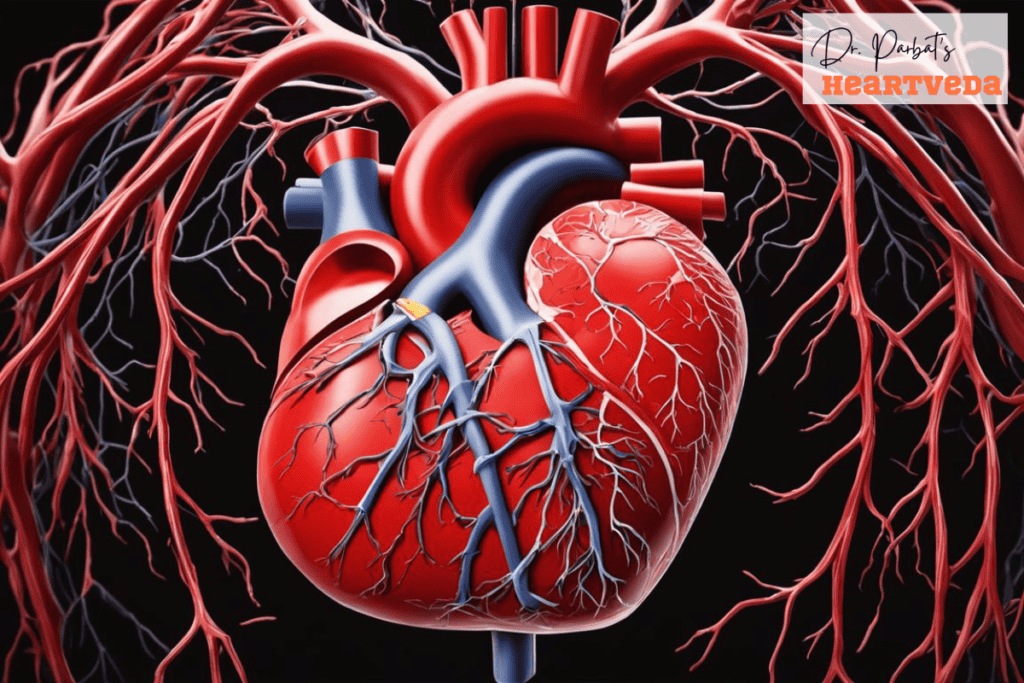
When you hear the term “cholesterol,” it’s often shrouded in negative connotations, particularly in relation to heart health. Yet, understanding cholesterol and heart health is not just about identifying a villain in the vast narrative of cardiovascular well-being. Instead, it’s about comprehending how the different types of cholesterol interact within your body. In essence, the role of cholesterol in heart disease is complex and multifaceted. Cholesterol itself, a waxy substance akin to fat, travels through your bloodstream, but not all cholesterol bears the same properties or consequences.
Two main characters in this story are high-density lipoprotein (HDL) and low-density lipoprotein (LDL). HDL is often lauded as the “good” cholesterol, working diligently to return cholesterol to the liver, where it can be expelled from your body. LDL, on the other hand, is dubbed “bad” cholesterol for a reason. An excess of LDL can lead to the build-up of plaque in your arteries, increasing the risk of a heart attack or other cardiac events. But don’t lose heart just yet—there are steps you can take to manage your cholesterol levels effectively.
The Basics of Cholesterol and Heart Disease
Understanding the types of cholesterol and their connection to heart health is pivotal in preventing and managing cholesterol and coronary artery disease. Your body’s liver is responsible for producing cholesterol, which is necessary for various biological functions. However, the foods you eat can significantly impact your cholesterol levels, adding to what your body naturally produces.
Elevated LDL (low-density lipoprotein) cholesterol is renowned for being a primary contributor to the development of heart disease. This is because LDL cholesterol can build up on the walls of your arteries, leading to atherosclerosis—a condition that narrows the arteries and increases the risk for heart attacks and strokes. In contrast, HDL (high-density lipoprotein), often referred to as ‘good’ cholesterol, helps mitigate this risk by carrying cholesterol away from the arteries and back to the liver, where it’s processed and removed from the body.
Due to the critical impact of cholesterol on heart health, researchers are constantly assessing guidelines for prevention, especially among adults over the age of 60. This demographic sometimes shows a different pattern in the correlation between LDL levels and overall health outcomes. Consequently, recognizing additional risk factors like high blood pressure, diabetes, and poor lifestyle choices is vital for a comprehensive understanding of heart disease risks associated with cholesterol.
| Risk Factor | Impact on Cholesterol Levels |
|---|---|
| High LDL (‘Bad’ Cholesterol) | Increases the risk for arterial plaque buildup |
| Low HDL (‘Good’ Cholesterol) | Decreases protection against heart disease |
| High blood pressure | Can cause damage to heart and blood vessels, exacerbating the negative effects of high LDL cholesterol |
| Diabetes | Often associated with lower HDL and higher triglyceride levels, which can amplify the risk of coronary artery disease |
| Unhealthy lifestyles | May contribute to higher LDL and lower HDL levels |
- Regular check-ups with your healthcare provider to monitor cholesterol levels
- Incorporation of heart-healthy foods in your diet
- Consistent physical activity to promote better circulation and cholesterol management
- Avoiding harmful habits, such as smoking, which can significantly worsen heart health
By being aware of these factors and how they contribute to your overall heart health profile, you can take proactive steps to manage cholesterol effectively, keeping your heart in a better state for a longer, happier life.
Which Cholesterol Causes Heart Attack
When it comes to coronary events, it is predominantly the role of LDL cholesterol and heart attack risk that you should be aware of. Elevated levels of LDL cholesterol can create a fertile ground for heart trouble by clogging and hardening your arteries. This buildup is a ticking bomb for heart-related emergencies such as angina, heart attacks, and potentially fatal strokes.
On the flip side, HDL cholesterol has been famously designated as the good cholesterol. This is because of its crucial role in vacuuming excess cholesterol and risk of heart attack by shuttling it away to the liver, from where it can be processed and eliminated from your body. Yet, recent insights from the REGARDS study point to a more complicated story, suggesting that high HDL cholesterol may not universally signal reduced cardiovascular events, especially when considering different racial and ethnic backgrounds.
- Understanding the significance of LDL levels is key in heart health.
- Maintaining a balanced HDL profile continues to be important, though it’s not a standalone marker for heart health.
- The multifaceted nature of cholesterol’s relationship with heart disease requires a personalized approach to risk assessment.
Recognizing the importance of monitoring both types of cholesterol is a pivotal step towards safeguarding your heart and reducing the likelihood of heart attacks. A comprehensive approach, including regular check-ups and lifestyle adaptations, can be the best defense against the silent threat posed by cholesterol.
Dietary Factors That Influence Cholesterol Levels
As you seek to protect your heart and prevent the risk of high cholesterol and heart attacks, understanding the relationship between cholesterol and cardiovascular disease is crucial. Your diet plays a pivotal role in managing both HDL and LDL cholesterol levels, and consequently, your heart health. Let’s dive into the dietary choices that can either put you at risk or help maintain a healthy cardiovascular system.
- Trans Fats: Once a common ingredient, trans fats have been largely banned due to their adverse impact on cholesterol levels.
- Saturated Fats: Foods high in saturated fats, like red meats and full-fat dairy products, are known to raise LDL cholesterol, which is a precursor to heart disease.
- High-Fiber Foods: Incorporating oats, whole grains, and fruits into your diet can be beneficial in managing cholesterol levels.
- Healthy Fats: Sources of monounsaturated and polyunsaturated fats such as nuts and fatty fish encourage a healthy lipid profile.
Not only what you eat but how you prepare your food is essential. Opt for heart-friendly cooking methods:
- Grilling
- Broiling
- Baking
These techniques help reduce overall fat intake which, in turn, can contribute to better cholesterol management and decreased heart disease risk.
| Fat Type | Source | Impact on Cholesterol |
|---|---|---|
| Trans Fats | Margarine, processed snacks | Elevates LDL, lowers HDL |
| Saturated Fats | Red meats, full-fat dairy | Increases LDL levels |
| Healthy Fats | Nuts, fatty fish | Improves HDL, lowers LDL |

Remember, integrating these diet modifications can steer you away from taking a path that leads to cardiovascular disease and keep you traveling on the road to heart health. Pay close attention to what’s on your plate and know that each wholesome choice you make is a step forward in the battle against high cholesterol.
Heart Attacks: Risk Factors Beyond Cholesterol
Understanding the relationship between cholesterol and cardiovascular disease is crucial, but did you know that dangers lurking beyond high cholesterol can incite heart attacks? Indeed, heart health is a multifaceted concern, requiring vigilance over a spectrum of risk factors. While keeping an eye on cholesterol levels is necessary, it’s just as vital to manage other conditions that influence your propensity for heart disease.
Several factors, often interacting with one another, escalate your risk of heart-related illnesses, some of which are well within your power to change. Examining these contributors helps paint a full picture, enabling you to forge a personalized path toward cardiovascular well-being. Let’s explore these risk factors that go beyond cholesterol.
- High blood pressure: This stealthy condition often comes without warning signs but allows the perfect milieu for heart disorders to thrive.
- Diabetes: Elevated blood sugar levels over time can damage blood vessels and the nerves controlling your heart.
- Family history: Genetics can unfortunately stack the deck against you in the game of heart health.
- Obesity: Carrying extra weight strains the heart, influencing a range of complications including high cholesterol and heart attacks.
- Physical inactivity: A sedentary lifestyle is a known contributor to cardiovascular disease, worsening other risk factors.
- Poor diet: What you eat lays the groundwork for either health or disease, affecting your body’s ability to manage cholesterol and more.
- Smoking: Every puff of smoke invites harmful substances that can accelerate the buildup of plaque in your arteries.
- Age and menopause: Natural aging and hormonal changes can tweak your health profile, increasing risks.
While the individual impact of each factor varies, the interplay between them can significantly amplify your risk. It’s not just about high cholesterol, but how these elements converge to impact your heart’s health.
| Risk Factor | Description | Impact on Heart Health |
|---|---|---|
| High Blood Pressure | Increases the force against artery walls | Can lead to hardening of arteries, increasing the risk of heart attacks |
| Diabetes | High glucose levels in the blood | Damages blood vessels, posing significant threat to heart health |
| Obesity | Excess body weight, especially around the waist | Strains the heart and correlates with high levels of bad cholesterol |
| Smoking | Intake of nicotine and other chemicals | Accelerates plaque buildup and increases the likelihood of heart attacks |
Recognizing these risk factors is the first step to taking control. Lifestyle adjustments, such as improved nutrition, regular physical activity, and cessation of smoking, can have a positive impact on your heart’s health. It is essential to keep these risks in check, collaborate with healthcare professionals, and possibly rewrite your story, free from the shadow of heart disease.
Lifestyle Changes to Improve Cholesterol Profiles
Embarking on the journey of understanding cholesterol and heart health might seem daunting, but it becomes manageable when you realize the power lies within your daily choices. Your commitment to lifestyle changes to manage cholesterol is a formidable defense against this silent health adversary. Emphasizing a diet that celebrates the natural bounty of fruits, vegetables, whole grains, and heart-healthy fats is paramount. Steering clear from trans fats and monitoring your intake of saturated fats will not only aid in maintaining a desirable cholesterol profile but also nurture your overall well-being.
Regular physical activity is another cornerstone of heart health. Whether it’s a brisk walk or a vigorous gym session, it stimulates the circulation of HDL, colloquially known as the ‘good cholesterol’, throughout your system. Complementing this effort, weight management plays a crucial role; shedding extra pounds often translates to reductions in LDL levels and boosts in HDL. Furthermore, embracing a smoke-free life and limiting alcohol consumption will significantly multiply the benefits to your heart and its vascular companions.
As the years roll by, don’t underestimate the significance of routine health screenings. These check-ups are vital in assessing your cholesterol levels and adjusting your game plan accordingly. In some cases, medications might be needed to complement your lifestyle alterations. Under your healthcare provider’s guidance, these treatments can optimize your heart health outcomes and provide you with the peace of mind that you’re on the right track. Remember, every positive choice is a stride towards a healthier heart and a more vibrant life.
Key Takeaways
- Cholesterol comes in different forms, with HDL being beneficial for heart health and LDL contributing to heart disease.
- The liver is the main producer of cholesterol, but diet can significantly alter your cholesterol levels.
- Understanding the types of fats and their impact on LDL and HDL is crucial for maintaining a heart-healthy diet.
- Regular health check-ups and lifestyle adjustments can help manage cholesterol and reduce heart disease risks.
- Education on heart health is your strongest ally in preventing heart diseases associated with cholesterol.
